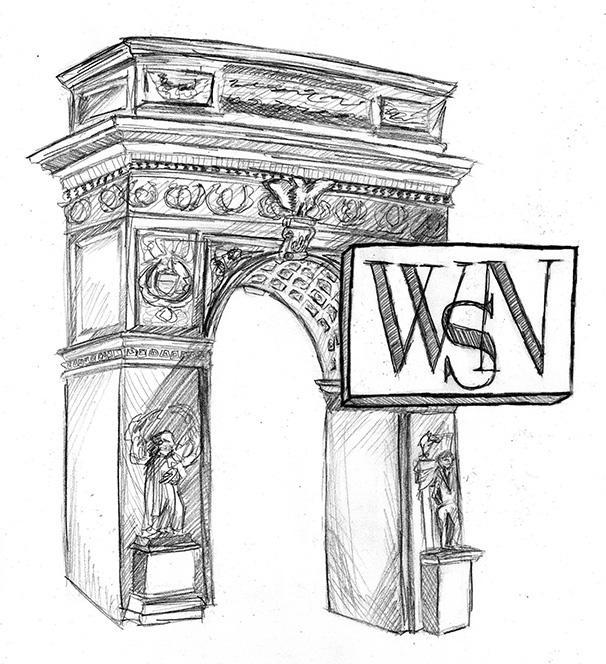Throughout the semester, we’ve been trying to understand NYU’s treatment of its students — more specifically, whether NYU is implicitly pro- or anti-student. A pro-student university acts in its students’ best interests as often as possible; an anti-student university puts its own interests ahead of all else.
NYU’s problematic actions have continued to unfold since this semester’s outset. The university has protected sexual predators, hid dining hall health hazards and mistreated faculty members. These are just a few examples. Taking the semester’s controversies into consideration, one thing is clear: NYU is not pro-student.
Perhaps the most blatant example of NYU putting its own interests before those of its students — or rather, before its students’ safety — is the presence and protection of sexual predators on campus. The semester began with the return of professor Avital Ronell, who’d been suspended for one year after an NYU investigation found her guilty of sexually harassing her graduate advisee. Her return was met with intense backlash — most prominently from NYUToo, a graduate student coalition formed in response to her return, but additionally from a large portion of the student body. But the university still brought her back to campus, and the only possible reason for doing so is Ronell’s prominent status in her field — a letter in her defense by fellow academics cited that she’s the chair of the European Graduate School’s department of philosophy and has received the Chevalier of Arts and Letters award from the French government.
Shortly after the semester began, university trustee Michael Steinhardt was found to have made sexually inappropriate comments to several members of the NYU community. After Steinhardt was found guilty by a university investigation, NYU decided not only to keep his name on the school but to also keep Steinhardt himself on the Board of Trustees. University bylaws state that any board member is able to be removed “with or without cause at any time,” yet Steinhardt still holds his seat — despite being found guilty of sexual misconduct toward members of the NYU community.
In October and November, respectively, WSN found that Palladium Food Court and Upstein had both failed health inspections. Both dining halls had violations concerning contamination of food — Upstein’s investigation reported that food was “not protected from potential source of contamination during storage, preparation, transportation, display or service”; Palladium kept its food at too high a temperature, which could have caused a norovirus outbreak. However, NYU did not tell its students about the health hazards on campus. In one instance, the university sent a press release noting that many dining halls had passed inspection, but under further investigation, WSN found that Upstein — which was not mentioned in the press release — had failed.
NYU’s 2017 tax returns were released at the beginning of October. This gave students insight on how the university spends its money — and how it could do a better job. While most of the university’s financial practices remain unclear, its lack of affordability persists and the financial burden weighs on many students. As we continue to look for ways to make NYU more affordable, transparency is key to gaining a clearer understanding of how NYU spends our money.
In late October, WSN found that Liberal Studies professors are looking to unionize due to unfair treatment by NYU. The professors cited a lack of job security, unequal pay to their Faculty of Arts and Science counterparts, inability to receive tenure and generally poor treatment by administrators, which made them seem “regarded as second class faculty.” LS is the second-largest undergraduate program; there is no valid reason for NYU not to treat LS professors equally to all other faculty. However, by treating LS faculty worse than their counterparts, NYU has indicated that the school and its faculty are somehow less important than all others.
In November, students reported having their financial aid packages changed after using NYU’s Courtesy Meals Program. Although the situation was resolved and all aid was returned, this recent development hurt the reputation of the program and left students less likely to use it. This led many to question why this even happened in the first place — after all, the program was established to help students who couldn’t afford meals. After NYU began promoting the program, the number of participants rose from around 40 users to 1,933 users over the last two academic years. This speaks to NYU’s widespread problem of food insecurity, a problem which nearly half of all U.S. college students face. As the university continues to navigate this difficult issue, its focus should be on the needs of its most vulnerable students.
Ultimately, all of these issues and many others are rooted in the lack of student participation in the affairs of our university. As students, it’s important to remember that we are the only ones who will look after our interests and advocate for ourselves. If a university fails to be pro-student, it is up to the students themselves to hold its feet to the fire.
A version of this article appeared in the Monday, Dec. 2, 2019 print edition. Email the Editorial Board at [email protected].


























































































































































